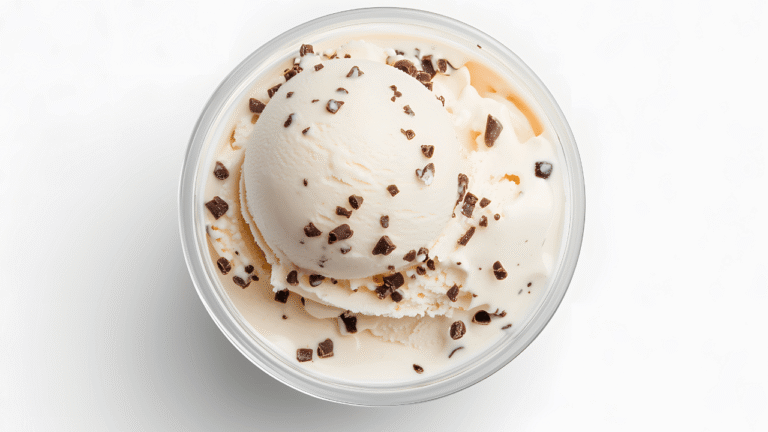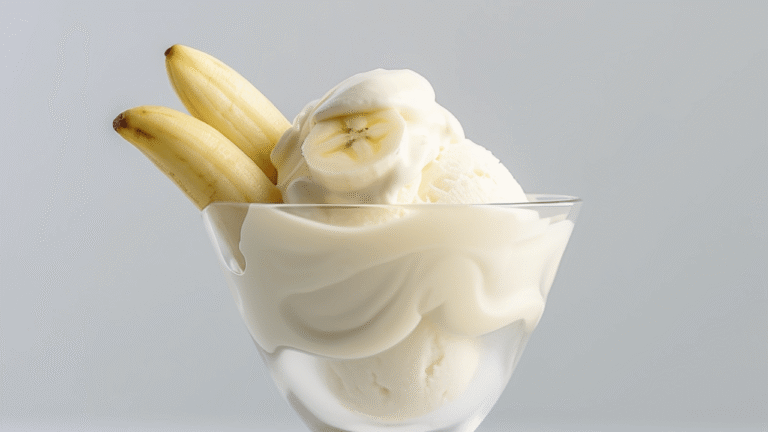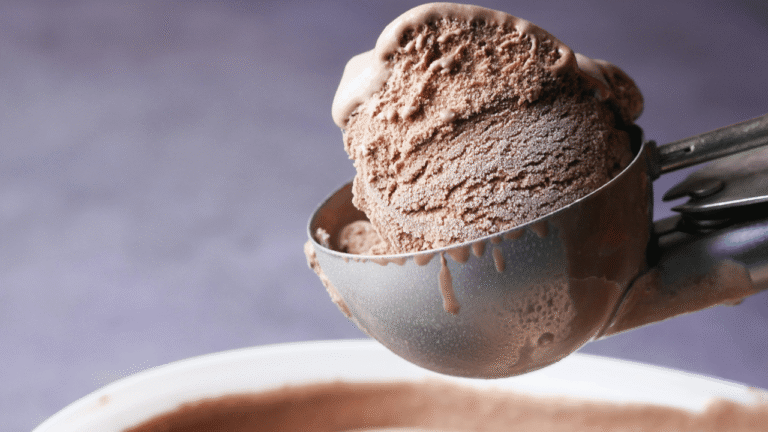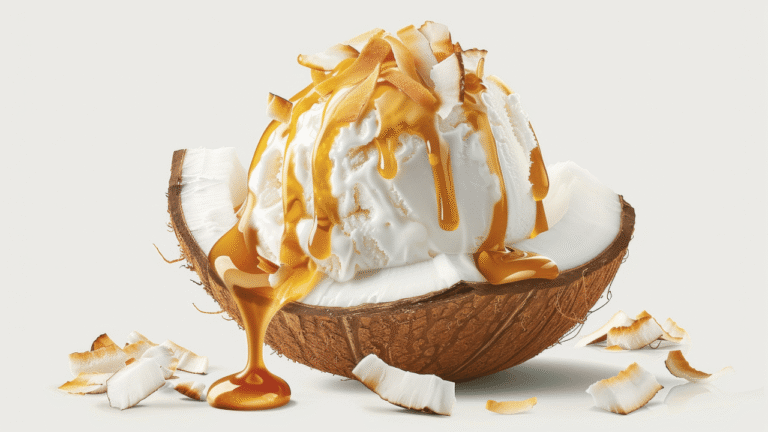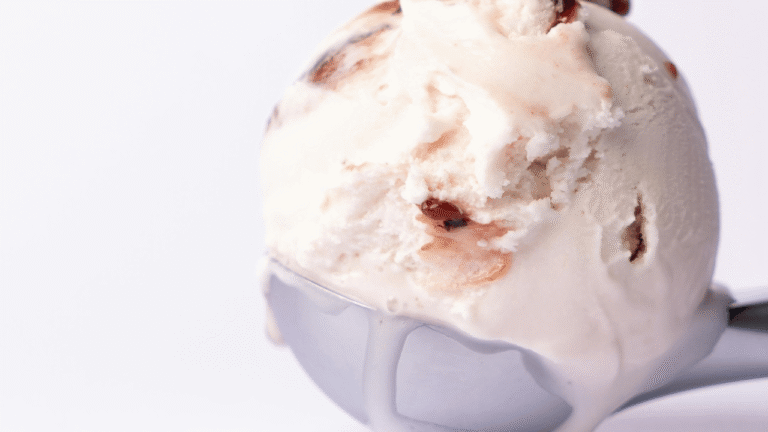Ever opened the freezer, eager forice cream soft in freezer but everything else frozen ice cream, only to find it soft? This can be a real bummer. It might mean there’s a problem with your freezer. Let’s figure out why this happens and how to fix it, so your ice cream stays perfect.
Key Takeaways
- A soft ice cream can be caused by an inadequate freezer temperature.
- Proper freezer storage for ice cream involves optimal temperature settings and proper packaging.
- Frequent door openings can contribute to the ice cream not freezing properly.
- Diagnosing the problem can involve checking temperature settings and inspecting freezer seals.
- Solutions include adjusting freezer temperatures and organizing items for better air circulation.
Homemade Vanilla Ice Cream
4
servings30
minutes40
minutes300
kcal1
hour10
minutesA simple, creamy vanilla ice cream for beginners.
Keep the screen of your device on
Ingredients
2 cups 2 heavy cream
1 cup 1 whole milk
0.75 cup 0.75 granulated sugar
1 tablespoon 1 pure vanilla extract
1 pinch 1 salt
Directions
- In a medium-sized mixing bowl, whisk together the heavy cream and whole milk until fully combined.
- Gradually add the granulated sugar to the cream mixture while whisking until the sugar is completely dissolved.
- Stir in the pure vanilla extract and a pinch of salt to enhance the flavors of the ice cream.
- Cover the mixing bowl with plastic wrap and refrigerate the mixture for at least 2 hours to chill thoroughly.
- Pour the chilled mixture into your ice cream maker and churn according to the manufacturer's instructions, typically around 20-25 minutes.
- Once churned to a soft-serve consistency, transfer the ice cream to an airtight container.
- Freeze the ice cream in the container for at least 4 hours or until firm but scoopable.
- To serve, allow the ice cream to sit at room temperature for a couple of minutes for easier scooping.
Recipe Video
Nutrition Facts
- Total number of serves: 4
- Calories: 250kcal
- Cholesterol: 70mg
- Sodium: 50mg
- Potassium: 110mg
- Sugar: 25g
- Protein: 3g
- Calcium: 100mg
- Iron: 0mg
- Thiamin: 0mg
- Riboflavin: 0.2mg
- Niacin: 0mg
- Folate: 5mg
- Biotin: 0mg
- Phosphorus: 45mg
- Iodine: 0mg
- Magnesium: 10mg
- Zinc: 0.5mg
- Selenium: 2mg
- Copper: 0mg
- Manganese: 0mg
- Chromium: 0mg
- Molybdenum: 0mg
- Chloride: 0mg
Did you make this recipe?
Tag @https://www.instagram.com/ice_cream_haven/ on Instagram and hashtag it with #IceCreamIceCreamHavens
Like this recipe?
Follow @https://www.pinterest.com/Ice_Cream_Haven/ on Pinterest
Join our Facebook Group!
Follow https://www.facebook.com/icecreamhavens/ on Facebook
Understanding Freezer Functionality
Knowing how freezers work is key to keeping ice cream at the right freezer temperature for ice cream. This ensures it stays delicious. Freezers use different parts to keep things cold.
How Freezers Work: Cooling Mechanisms
Freezers cool down using special liquids that move through coils. This helps keep the inside cold. If something goes wrong, like with the compressor, ice cream can melt or get soft.
Importance of Temperature Settings
Keeping the freezer at the right temperature for ice cream is very important. Experts say it should be below 15 degrees Fahrenheit. This keeps ice cream perfect and stops it from melting.
The Role of Air Circulation
Air moving around in the freezer is also key. The fan and motor help spread cool air everywhere. Make sure vents are clear to avoid cold spots and ice.
ice cream soft in freezer but everything else frozen
Getting soft ice cream from your freezer can be a letdown. You might expect it to be firm and perfect. Several things can make your ice cream soft. Knowing these can help you fix the problem and keep your ice cream just right.
Inadequate Freezer Temperature
A big reason for soft ice cream in the freezer is a freezer that’s not cold enough. Freezers should stay at 0°F (-18°C) or colder. If it’s warmer, your ice cream won’t freeze right, making it soft.
Improper Packaging or Sealing
How you package your ice cream also matters. If it’s not sealed well, it can pick up moisture and smells from other foods. This changes its texture and taste. Best practices for storing ice cream include using airtight containers and making sure the lid is tight.
Frequent Door Openings
Opening and closing the freezer door too much lets warm air in. This can make your ice cream soft because it can’t stay frozen. Try to open the freezer less often to keep your ice cream firm.
Diagnosing the Problem
When you find ice cream soft but everything else frozen, a careful check is needed. A systematic approach to diagnosing freezer issues and proper maintenance can fix the problem.
Checking Temperature Settings
First, check the freezer’s temperature. It should be at 0°F (-18°C) for everything to freeze right. If not, adjust the dial and wait a few hours for it to cool down. This simple step is key in diagnosing freezer issues effectively.
Inspecting the Freezer’s Seals
Then, look at the seals around the freezer door. If they’re damaged or have gaps, cold air can escape. This uneven cooling can make some items, like ice cream, soft. Check the seals for cracks or use the dollar bill test to see if the door seals well.
Evaluating Food Placement and Organization
Lastly, check how food is arranged in the freezer. If it’s too crowded, air can’t move well. This can make some items, like ice cream, stay soft. Make sure there’s enough space for air to flow. Organizing the freezer helps keep everything frozen evenly.
Solutions to Fix Soft Ice Cream
Getting your ice cream to the right consistency can be tough, thanks to other frozen items. Here are some tips to keep your ice cream firm and tasty.
Adjusting the Temperature
Your freezer’s temperature is key to keeping ice cream firm. Make sure it’s set between 0°F and -5°F. This keeps your ice cream from getting too soft.
Repackaging Ice Cream Properly
Air can make ice cream soft. Use airtight containers or plastic wrap to keep it fresh. This keeps the texture right and prevents freezer smells.
Optimizing Freezer Space for Maximum Efficiency
Organizing your freezer is important for even cooling. Too many items can block air flow. Keep things tidy to ensure everything stays cold. This helps your freezer work better, so you can store ice cream and other items well.
Maintenance Tips for Your Freezer
Keeping your freezer in top shape is essential for food quality and appliance longevity. By following key freezer care tips, you can ensure it works well and save on repairs.
Regularly Cleaning the Freezer
Keeping your freezer clean is a must. Regularly remove dirt and make sure the condenser coils are dust-free. This simple step greatly boosts your freezer’s performance.
Monitoring Temperature Consistently
It’s also important to check and adjust the temperature often. Make it a routine to check if the temperature is right. This helps prevent problems with food storage and keeps your freezer running smoothly.
Avoiding Overcrowding and Air Blockages
Organizing your freezer well is key to its efficiency. Avoid overcrowding and ensure good airflow. Leave enough space between items to prevent air blockages. This helps keep the temperature steady and ensures your freezer works its best.
When to Seek Professional Help
While regular maintenance tips and minor adjustments can often keep your freezer running efficiently, certain issues may require the expertise of a professional. Recognizing these problems early can save you from costly repairs or food spoilage. Here, we discuss common signs that your freezer may need professional help and provide guidance on how to evaluate repair costs versus replacement, as well as tips for selecting a qualified technician.
Signs Your Freezer Needs Repair
If your freezer is making continuous unusual noises or struggling to maintain the proper temperature, these are clear indicators that something is amiss. Excessive frost buildup, water leaks, or noticeable temperature fluctuations can also signify the need for freezer repair. A prompt response to these issues not only ensures your food remains safely frozen but also prevents further damage to the appliance.
Evaluating the Costs of Repairs vs. Replacement
Determining whether to repair or replace your freezer depends on several factors, including the age of the appliance, the cost of the repair, and the overall condition. Generally, if the repair costs are less than half of the price of a new freezer, opting for professional freezer maintenance might be the better choice. If your freezer is over ten years old, it might be more cost-effective and energy-efficient to consider when to replace your freezer.
Finding a Qualified Appliance Technician
When opting for a repair, ensure you select a skilled technician to guarantee reliable service. Look for certified professionals with strong reviews and experience in freezer repair. Ask for recommendations from friends and family or consult local business directories. Checking for proper licensing and insurance is also important to safeguard your home and appliance during the repair process.








